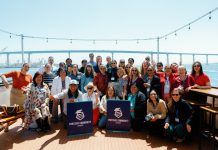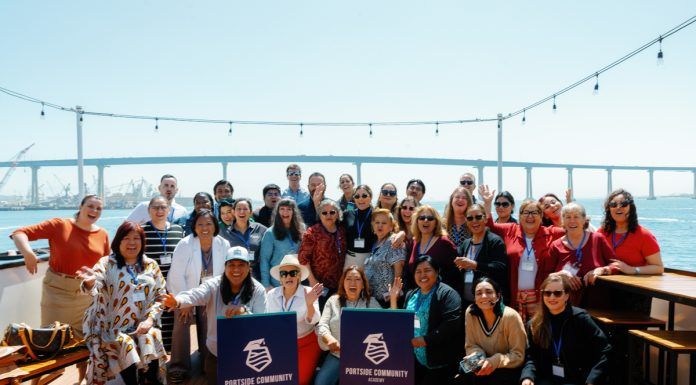Chula Vista is a city that is deeply committed to supporting the next generation. Every day, members of our community make time in their busy schedules to attend children’s awards assemblies, recitals, and sporting events. Libraries and local businesses display children’s trophies and artwork to celebrate hard work and dedication. Efforts like these send a clear and important message – we are a community that invests in our future.

As a graduate of the Sweetwater Union High School District, I benefited greatly from this kind of support from our community. Organizations like the Chula Vista Womens Club, the Rotary Club, and the Quin Murphy Foundation empower kids in our community to pursue higher education and work hard to make it financially possible for their families.
Without the financial and social support of our community, I would have never pursued a career in science. Today, I am proud to represent Chula Vista as a PhD Student in the Department of Psychology at Princeton University. Here, I dedicate my time to researching how we can help children become emotionally-competent communicators and collaborators.
My colleagues and I pursued careers in science with a singular goal in mind: helping people lead healthier, happier lives. Whether researchers spend their days analyzing the impact of social media on mental health, engineering prosthetics, or designing clinical trials to cure diseases, all scientists are dedicated to keeping communities safe, happy, and healthy. For this reason, my colleagues and I work hard to ensure that every dollar spent on our research goes towards this goal.
In the past few weeks, the Trump administration has started to cut billions of dollars towards research funding. In addition, they have condemned programs that increase access and diversity to scientific research – threatening universities who “fail to comply.”
The slashing of federal research programs put us all at risk. Many projects funded by the National Science Foundation (NSF) and the National Institutes of Health (NIH) have direct and positive impacts on our community, like those promoting cardiovascular health among Latinos, analyzing the air quality in the Tijuana River Valley, or helping low-income students pursue STEM at local universities. Beyond local impacts, the NIH has been responsible for funding 99.4% of all medications developed in the last decade and creating myriad opportunities for economic growth. I could go on and on, but the bottom line is that scientific funding is far from irrelevant or wasteful.
These cuts not only threaten the scientific and economic progress of our country, but they also weaken educational opportunities for children in our communities. As a high schooler, my classmates and I benefited from federal grants awarded by the Department of Defense (DOD) and the National Math and Science Initiative (NMSI). These grants provided funds for extra coursework, exam preparation, and financial incentives to help us do well on our Advanced Placement exams.
The next time you find yourself at a museum, school board meeting, or even a doctor’s office, I encourage you to ask how cuts to federal funding will affect day-to-day operations.
Already, the University of California school system has enacted hiring freezes, and several universities have paused or rescinded PhD offers. The implications of these cuts are bleak. We will lose out on an entire generation of future teachers, engineers, professors, doctors, scientists, social workers, community leaders, and more.
Thus, these cuts jeopardize the present and future health of our community. Without scientists, who will work on the cures that will one day save our loved ones from diseases like dementia and Alzheimer’s? How can we address the mental health crisis among veterans if we stop training doctors, researchers, and social workers? Every day, you and I benefit from federally-funded programs that keep our families healthy. It is not an exaggeration to say that these programs save lives.
Nevertheless, our government is sending a clear message: we are not interested in spending your taxpayer dollars to support your health, your economy, or the education of your children.
The time to show up for science is now. Please consider using your voice to get in touch with representatives and ask what steps they are taking to protect science. At the ballot box, vote for candidates who invest in the health and well-being of our community. Finally, if you or someone you love has ever benefited from scientific discoveries or educational opportunities sponsored by the government, please consider sharing your story on social media and at public forums like city council and school board meetings.
Let’s do our best to secure a bright future for our community.
Chantal Valdivia-Moreno is a PhD Student in the Department of Psychology at Princeton University. She is a proud alum of Hilltop High School and former resident of Chula Vista.















